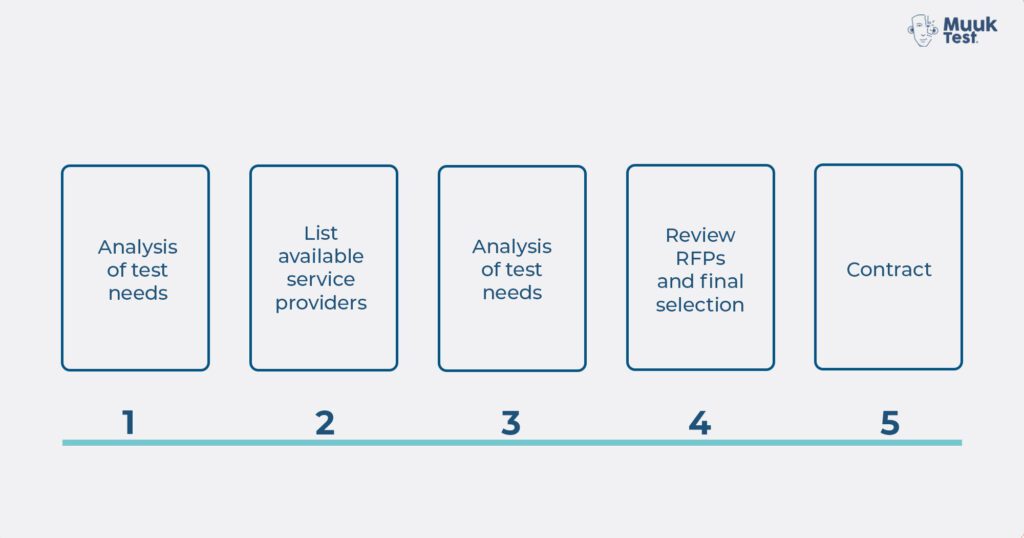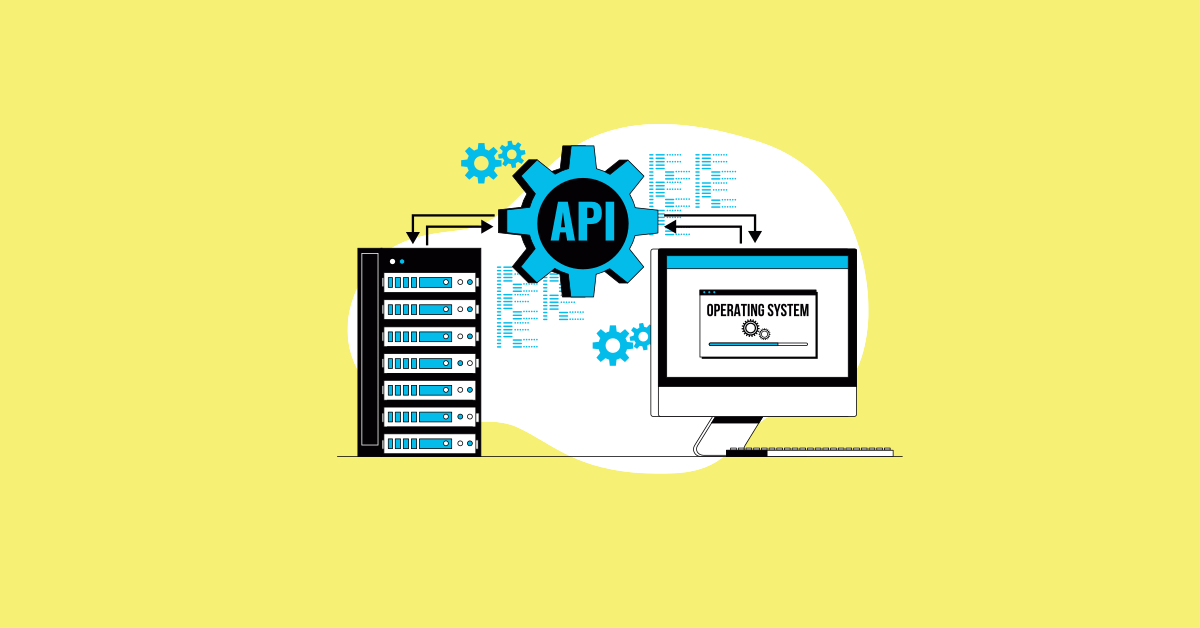The fast pace of invention and development in the modern technological world is unparalleled, with new technologies constantly developing and appearing. Variables such as improved computer capabilities, an increase in mobile device usage, and easier access to data have contributed to this environment. Because of this, companies will look towards hiring software testers (whether in-house, on a freelance set-up, or through a service partner) as an option to get ahead of the rest.
This ecosystem is being driven by a number of critical technologies, including blockchain, the Internet of Things (IoT), cloud computing, artificial intelligence, and 5G. Many other industries, including manufacturing, transportation, and even the financial and healthcare sectors, stand to benefit significantly from this technology. Individuals and organizations must keep up with technological developments if they want to remain competitive and seize new opportunities.
Businesses frequently have software issues; however, failures of safety-critical programs make for the most upsetting and heartbreaking news. In today’s software development environment, many things compete for limited resources, and quality testing is often overlooked in favor of other aspects. Companies might have prevented all the terrible occurrences if their software had undergone rigorous testing.
In an effort to keep up with this rapidly changing landscape, companies are constantly looking for innovative and effective practices for hiring software testers. These collaborators might work on a project-by-project basis or they can be hired through a Managed Service Partner for Quality as a Service (QaaS).
Another effective approach is leveraging recruitment services like SaviorHire, which connect businesses with pre-screened, highly qualified software testers. This method allows companies to quickly identify the right talent, whether for short-term projects or long-term needs, streamlining the hiring process and ensuring a more efficient and targeted selection of candidates.
Pros and Cons of Hiring Freelance Software Testers
When it comes to technical developments, “speed” is key. Businesses that fall behind in terms of innovation and advancement are losing ground. Finding a good independent contractor is possible but takes time, which costs money and can put you behind the competition.
There are also some details to look out for when hiring software testers who will work on a freelance setup:
Unreliability
Hiring independent contractors is a matter of chance. During my time at a company in the retail sector, one of the engineering verticals opted to work with independent testers on a part-time basis in order to test their newly released website for their premium customers.
The first issue was the complexity of identifying a candidate who could be trusted with their work. There were many ups and downs in the execution of their jobs once the person was finally onboarded, including irregularities in their work which led to multiple delays. When we looked more closely, we realized that the independent contractor had very little IT experience and was relying on his friends to help him finish the job.
Security Concerns
Security and internal private data breaches are a possibility when working with independent contractors and freelancers. Freelance software testers are typically not included in data security training, which is a significant gap in current business practices.
Research shows that 37.9% of users without security training end up being direct victims of phishing attacks. Precautions and key training should be scheduled and considered in order to protect data and ensure that freelancers are more reliable. Sensitive customer information was accidentally exposed when a freelance test engineer was given access to the human resource production system. The freelancer shared these details with a competitor, resulting in a significant data breach on the client’s end.
Lack of Commitment
Test engineers who work freelance are not required to have the same passion as an invested partner. Since freelance software testers often work with numerous clients at once, the complex commitment theory becomes more complicated. We most likely witness impaired work as a result of several engagements. The most important activity in the development process is software testing; any compromise might result in a loss for the organization.
Fitment Issues
Evaluating the qualifications of freelance software testers and independent contractors is one of the biggest obstacles. The majority of the applications had every other technology stated on them, which made it challenging to establish confidence while I was tasked with hiring a junior test engineer for a freelance company.
Just “Another Client”
Independent contractors and freelancers are constantly motivated to maintain their contacts and pursue ongoing lead generation. Unless there is a long-term contract, you are just another client.
During my time at a marketing firm in the UK, we employed a freelance test engineer to test our application for pricing strategy. Everything seemed to be going fine until we received a monthly timesheet with someone else’s name on it. When questioned about this, the test engineer confided in us that he has been dealing with multiple clients, and his wife was testing our application. They chose to do this in order to avoid paying taxes. Not only was the quality of the application in jeopardy, but the situation also posed a legal risk.
Coordination
When there are multiple independent contractors hired to do the job, it’s a mammoth task to keep all of them aligned. You must ensure they are all on the same page regarding testing objectives, timelines, and communication protocols let’s not forget the test reports if any.
Accountability
Freelance software testers might not feel as responsible for their accomplishments or shortcomings. They might not have the same sense of ownership to ensure that your software or app is entirely and accurately tested, as they may not be as committed to the long-term success of the business. Project managers have had to postpone projects in the real world because freelancers occasionally behave inexplicably. In one case, an independent contractor didn’t show up for work after a week.
Managed Testing Services as an Alternative to Freelance Software Testers
In order to vastly reduce the aforementioned risks, most firms choose to instead collaborate with managed QA testing services. The hiring, onboarding, training, and replacement of employees with the necessary skill set as and when necessary may be done conveniently and with flexibility that does not interfere with project timeframes.
In a world of poor customer service and data breaches, it’s no surprise that many companies are opting for quality as a service (QaaS). Instead of hiring expensive internal resources to test their applications, companies can outsource the testing process to managed software test providers (MSPs). QaaS can improve organizational agility by allowing teams to move quickly between projects. Managed service providers can help businesses save money because they handle routine tests, freeing time for more strategic activities.
In the past, time and money built methodically constructed teams from the ground up. Recruiting talent and onboarding them takes anywhere between four to 12 weeks. Businesses need to maintain speed and quality at scale now more than ever. Outsourcing software testing services with a managed partnership approach has proven effective in rapidly delivering complex software.
A managed test partner can do end-to-end testing on the application and provide valuable feedback before the product launches in order to fix any bugs before release. Knowing the gaps and issues in advance can prevent quick fixes from coming at later stages of development.
Traditional test practices have taken a back seat since the introduction of DevOps. Frequent code deployment necessitates additional testing activity to ensure code quality. The power of shifting left can only be realized if teams use test automation. To achieve this continuous code quality at a lower cost, businesses are opting for automated testing services.
According to the recent IDC reports, the automated software quality market segment is estimated to grow:
CAGR 14.3% in the public cloud segment by 2026.
CAGR 4.9% in on-premise segments by 2026.
How to Select the Best Managed Software Test Providers
In this global economic competition with new digital innovations, businesses have to channel the team’s focus on building new concepts and ideas by outsourcing regular maintenance activities. With software quality and cost in mind, how can one determine the best reliable managed service partner to outsource QaaS?
A generic 5 step vendor selection process can help:

TPT Model for Managed Partner Selection in Software Testing
The following are the primary factors that businesses should look for when selecting an MSP for software testing.
Test Maturity
The Software Test Maturity Model (STMM) is a set of stages that shows the maturity of an organization’s testing process. This model is not an absolute scale where one automatically becomes more mature as they move up the ladder. In fact, the STMM is not really a ladder but a spiral. One can always improve their process by implementing better test practices and by adopting new test automation platforms, tools, and methods.
The STMM is based on a popular model of software processes called CMM or Capability Maturity Model. The CMM was designed to help organizations improve their software processes but was never intended to be used as a maturity scale. The STMM is a more generalized adaptation of the CMM, with test practices added and some of the infrastructure practices removed.
Software testing being the most important activity, it is essential to support the tests with dependable processes to produce solid test results. As a business leader, one should gain insights into the service partner’s strengths and weaknesses in software test implementations. STMM is a quick litmus test for managed partners’ maturity level in their testing services.
Higher STMM maturity improves the efficacy of testing. One of the core principles of TMM is bug prevention. Software test providers that help businesses prevent bugs are more valuable.
Automation Maturity
Automation can play a role in monitoring and control, as well as reducing manual errors. It can also be leveraged to help with test planning and execution and as a benchmarking tool for measuring the performance of the tests. Managed service partners should be capable of meeting quality goals at speed. The capability to support test automation with good coverage in less time is a must for managed service providers. Businesses expect that MSPs can deliver automation at scale and provide a robust process. There’s no point in creating an automation tool if you can’t keep pace with the dynamically growing requirements of your test suite.
Process Maturity
Managed Test service providers offer a wide range of test services for businesses:
- Rapidly scaling their test automation offerings
- Capacity planning
- Pipeline management
- Technical staff recruitment
- Training
In order to achieve results at maximum potential, service providers should have built strong supporting processes. It’s important to know what processes are being used, who is involved in each step, and what tools are used. Evaluating the service provider’s process maturity is important because it helps you to understand how well your team is aligned and communicating. It will also help you to identify areas for improvement. If a new service provider starts with a low level of process maturity, they are more likely to have mistakes and bottlenecks.
Establishing a shared understanding is essential for the success of any project. It promotes clear communication, consistency, collaboration, improved decision-making, and increased stakeholder satisfaction.
Ensuring that teammates, stakeholders, and clients have a common understanding of the project’s goals, requirements, and expectations, allows for the project to be completed successfully and meet its intended outcomes.
Managed testing partners like MuukTest can offer application testing to chisel out the greatest quality while assuring data protection, legal compliance, and prompt response.











